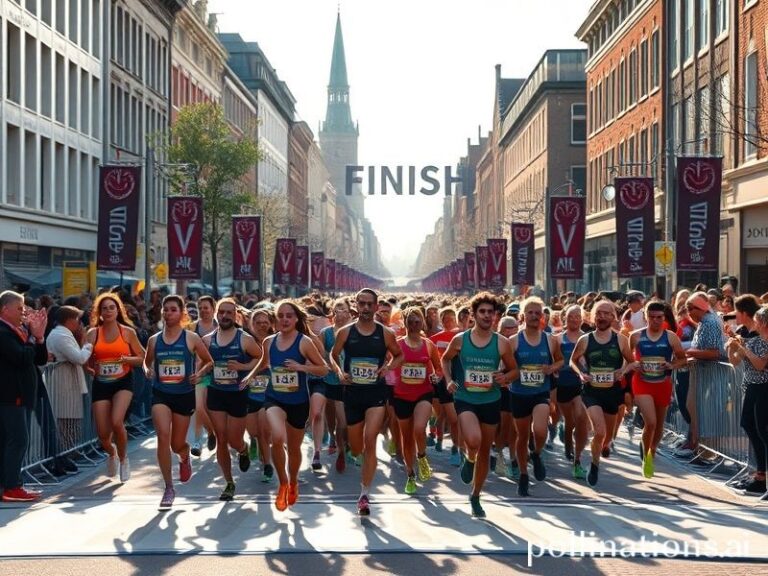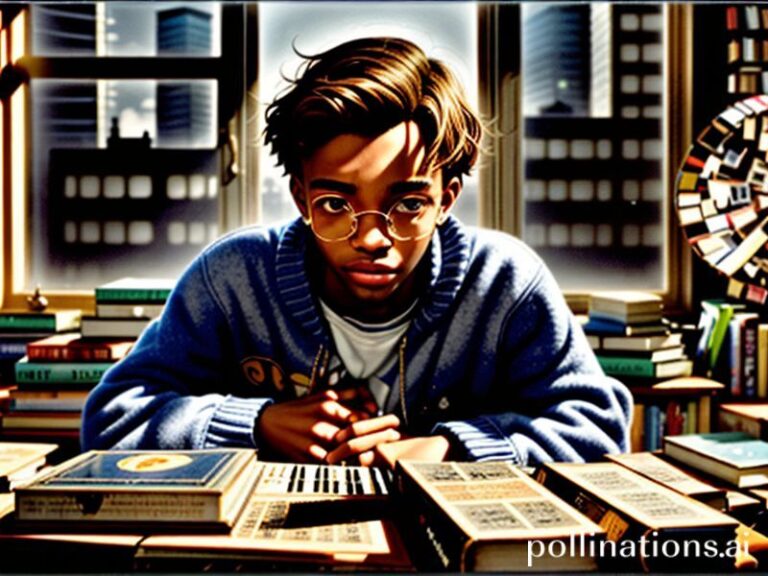World Series of Darts: How 23 Grams of Tungsten Became the Planet’s Most Diplomatic Weapon
World Series of Darts: When 23 Grams of Tungsten Become a Geopolitical Football
By Our Man in the Oche-Sphere
There’s something almost quaint about watching grown nations scream at one another over a pub pastime involving featherless arrows and beer-slicked carpet. Yet every November, the World Series of Darts rolls into town like a diplomatic summit with worse catering, and suddenly the fate of the free world hinges on whether Michael Smith can hit double-top before the Dutchman opposite remembers he’s supposed to be unbeatable.
This year’s caravan—London, New York, Auckland, Bahrain, and a hastily booked tent in Copenhagen because someone lost a bet—felt less like a sporting tour and more like a NATO exercise conducted entirely in polyester shirts. The draw was seeded by algorithm, which is Silicon Valley’s way of saying “we let the computer decide who hates whom most efficiently.” The result: a bracket that looked suspiciously like a G7 seating plan if the G7 were drunk and armed with pointy things.
Viewed from afar, the spectacle is a masterclass in soft-power projection. Britain flies in its best pub philosophers, all tattoos and tragicomic self-belief, to remind former colonies that imperial decline still comes with a 180 checkout. The Netherlands counters with the machine-calm of Michael van Gerwen, a man who celebrates a nine-darter the way an accountant greets a balanced spreadsheet—quiet satisfaction, then back to ruining someone’s quarterly projections. Australia sends Simon Whitlock, whose wizard beard is itself a UNESCO heritage site, while Japan fields a teenager who learned the sport on YouTube and now throws darts like a haiku: sparse, devastating, over before you’ve parsed the meaning.
The global TV feed, syndicated to 144 territories and one rogue pirate station in Tuvalu, pumps out nationalist graphics that would make a missile parade blush. Flags ripple in digital wind; anthems compress into thirty-second EDM remixes. In the commentary box, former champions provide analysis in the same tone oncologists use for promising trial results: cautiously optimistic, statistically doomed.
Beneath the glitz lies a darker truth: darts is the only sport where the athletes’ waistlines expand faster than their endorsement deals. Bookmakers sponsor the players’ waistbands like Formula 1 decals, a tacit admission that the real action is in predicting at what exact millisecond a 25-stone man will require oxygen. Meanwhile, betting apps flash odds in seventeen currencies, because nothing says international cooperation like simultaneous bankruptcy in rupees, pesos, and kroner.
The crowd is its own UN General Assembly. In Bahrain, sheikhs in thawbs clink plastic pints with Scousers who’ve flown in on £9.99 Ryanair tickets. In New York, Wall Street interns calculate arbitrage on the over/under of 140-plus finishes while nursing $18 Bud Lights. Everyone pretends to understand the rules; no one wants to admit they’re mainly here for the primal thrill of watching strangers fail in public—an emotion that translates fluently across cultures.
And then there’s the trophy: a silver monstrosity that looks like a medieval torture device repurposed by IKEA. Lifting it apparently grants the winner a lifetime supply of ego and precisely one year before the sport’s algorithm decides he’s now the designated villain. The runners-up receive a handshake, a photo op, and the quiet knowledge that back home their prime minister will blame the loss on “unforeseeable continental drift.”
As the confetti cannons fire and the champ thanks his manager, his optometrist, and the mysterious Latvian who keeps his flights in perfect order, one truth remains: the World Series of Darts is less about nine perfect arrows than about humanity’s need to weaponize absolutely anything—beer, math, gravity—into a contest with rankings. Somewhere a climate summit is adjourning without agreement, but 3,000 people in a temporary arena just achieved perfect harmony by booing a Germanic checkout attempt. Call it progress, call it farce; either way, the oche remains the only strip of land where borders dissolve into chalk dust and the only wall we’re building is the one you stand behind when it’s your turn to miss.
Until next year, keep your flights straight and your existential dread at double-one.







